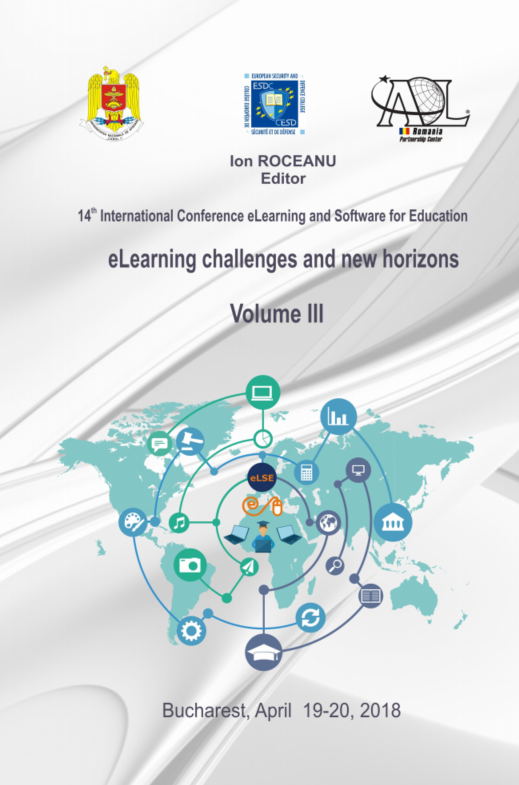Applications Characteristics of the New Technologies for Education
Applications Characteristics of the New Technologies for Education
Author(s): Carmen TIŢĂSubject(s): Social Sciences, Education
Published by: Carol I National Defence University Publishing House
Keywords: e-learning; online; students; learning theories;
Summary/Abstract: Developments technology of information and communications over the past decade had led to fundamental changes in educational practice, leading to the introduction of modern teaching and learning methods. Educational practice has changed from a closed pedagogical approach, closely taught by the teacher, to an open, transparent, integrated society, involving parents and the community, supporting the student's initiative, facilitating collaboration, personal skills and lifelong learning, and the online environment on it various types of effects: social, exposure or portraiture, different attitude, etc. The study proposes an impact analysis on how Gheorghe Asachi Technical University Iasi students perceive the importance from using e-learning, m-learning, but also the knowledge which they have about new learning methods. Identifying and analyzing: the current framework in which e-learning and m-learning are used in the teaching programs of the university, the type of technologies used by the students in the training phase they are going through, respectively the undergraduate, master or doctoral programs, the main advantages and disadvantages of e-learning and m-learning and if students find relevant to such courses, how respondents have knowledge of e-learning or m-learning learning systems, and whether in the training programs they participated had disciplines to which they are used, learning styles and their importance to students are the objectives of this article. Measuring the link between students' perception of the essential elements of e-learning and m-learning methods and those defined by specialists in the field, and if they considers relevant from university should adapt its programs and introduce some online courses.
Journal: Conference proceedings of »eLearning and Software for Education« (eLSE)
- Issue Year: 14/2018
- Issue No: 03
- Page Range: 206-213
- Page Count: 8
- Language: English

